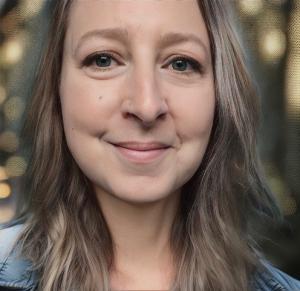
It is there as I do the things I love—from drinking my morning latte to nuzzling my cats to chatting with my husband, walking a path through tall grass, creating and working and falling asleep at the end of the day. It is present in every moment in between. When one is dealing with anxiety, it can be omnipresent and distracting, stealing one’s attention from the things that make life feel worthwhile and beautiful.
Anxiety is like having a switch in my brain that doesn’t turn off so my whole body buzzes like a hot electric wire. It’s like being tucked inside a pin cushion so I cannot take a full, deep, calming breath. In my experience, anxiety is less circumstantial than agitation and less rational than worry. Most often, the feeling cannot be tied to anything that has or will happen, yet the feeling is akin to dread. I feel anxious not because circumstances are foreboding, but because something in my physiology has gone off like bad milk.
During disparate periods of my life, I have suffered from depression; and while crisis was to blame in a few cases, my depressions were almost always tied to hormonal shifts, with years transpiring between them. But in menopause, hormonal shifts have led down a different path—not depression, but anxiety. While I have heard that the two conditions are similar physiologically, the experience of the two is quite different. (Some experience the two conditions by turns.)

Sharing Stories of Recovery
While I understand the hesitancy some people have around psychiatric medications, I don’t hesitate to take a prescription when I am suffering anxiety or depression. In the case of depression, it stops the persistent tears and the feeling of walking through quicksand. In the case of anxiety, it stops the march of dread and the feeling of struggling to take a full breath. It makes it possible to focus on, well, anything else. I’m fortunate to respond quickly and easily to medicine, so I can take mild doses with good results and no side effects.
If my experience of side effects was different, or my response to meds more tenuous, I might feel differently. As it is, I want to sing praises to the little white pill that gives me my heart back. I want to write odes to this little white pill. Somewhat recently, a young person I love faced serious mental health struggles that after many different, unsuccessful approaches was vastly improved with medication. So too, I want to sing praises to the medication that brought this loved one back from desperation. Oh God, I do.
My motivation for writing of my experience is to help, in a tiny way, destigmatize mental illness and the taking of medication in conjunction with other healing modalities to help treat it. A close friend shared with me the quote: “Recover loudly to keep others from dying quietly.” I want to recover loudly. It is a cliché that life is short, but I feel its truth. Anything that robs us of our ability to enjoy the days we have is too serious to hold alone.
Recovery from mental health struggles is similar to other kinds of recovery—where nothing is definitive or constant. Recovery must happen again and again and again; one day at a time. It is not a state one reaches, never again to leave. And so, encouragement for the journey must be renewed again and again. In my experience, the most potent encouragement for recovery comes from those who have walked the same road. This is why it’s so important to “recover loudly.”
Wren, winner of a 2022 Independent Publishers Award Bronze Medal
Winner of the 2022 Independent Publisher Awards Bronze Medal for Regional Fiction; Finalist for the 2022 National Indie Excellence Awards. (2021) Paperback publication of Wren , a novel. “Insightful novel tackles questions of parenthood, marriage, and friendship with finesse and empathy … with striking descriptions of Oregon topography.” —Kirkus Reviews (2018) Audiobook publication of Wren.



















